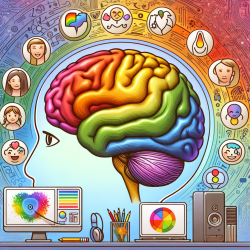Introduction to Osteopathic Manipulative Medicine (OMM) in Psychiatry
Osteopathic Manipulative Medicine (OMM) is an integrative approach that combines traditional medical practices with hands-on techniques to promote healing and wellness. As an online therapy provider like TinyEYE, understanding the potential benefits of OMM in psychiatric settings can enhance therapeutic outcomes, particularly for children and adolescents.
Research Insights: OMM's Role in Psychiatry
The research article "Osteopathic Manipulative Medicine and Its Role in Psychiatry" provides a systematic review of studies assessing the efficacy of OMM in treating psychiatric conditions. The study, conducted using the PRISMA guidelines, highlights that while OMM shows promise in indirectly alleviating psychiatric symptoms through the treatment of medical conditions like chronic pain and fibromyalgia, direct evidence of its efficacy in psychiatric disorders remains limited.
Key Findings and Implications
Here are some of the key findings from the research:
- OMM has shown positive effects on psychiatric symptoms when treating medical conditions such as chronic pain and irritable bowel syndrome.
- There is limited direct evidence supporting OMM's effectiveness in treating psychiatric conditions like depression and anxiety.
- Further research is needed to establish standardized OMM protocols and validate its use in psychiatric practice.
Practical Applications for Practitioners
For practitioners looking to incorporate OMM into their psychiatric practice, consider the following:
- Explore OMM as an adjunctive treatment for patients with comorbid medical conditions that may exacerbate psychiatric symptoms.
- Engage in further research and training to understand the nuances of OMM techniques and their potential benefits.
- Collaborate with osteopathic specialists to integrate OMM into a comprehensive treatment plan, especially for patients with chronic conditions.
Encouraging Further Research
The current body of literature suggests potential benefits of OMM in psychiatric settings, but more rigorous studies are needed. Practitioners are encouraged to participate in or support research efforts that aim to explore OMM's direct impact on psychiatric disorders and develop standardized treatment protocols.
Conclusion
While OMM offers promising adjunctive benefits in treating psychiatric symptoms indirectly, its direct application in psychiatry requires further validation. As practitioners, embracing a data-driven approach and remaining open to integrative therapies like OMM can enhance patient outcomes and contribute to the evolution of psychiatric care.
To read the original research paper, please follow this link: Osteopathic Manipulative Medicine and Its Role in Psychiatry.










